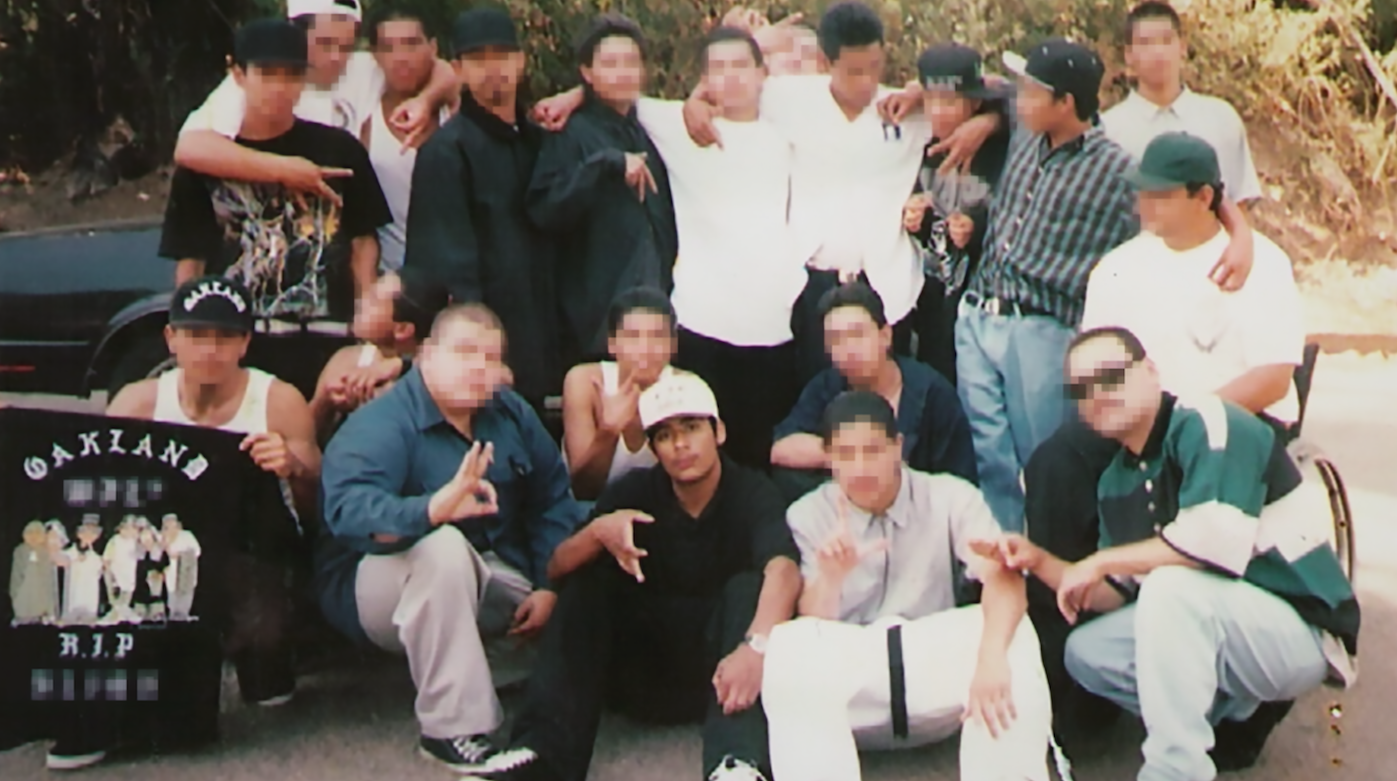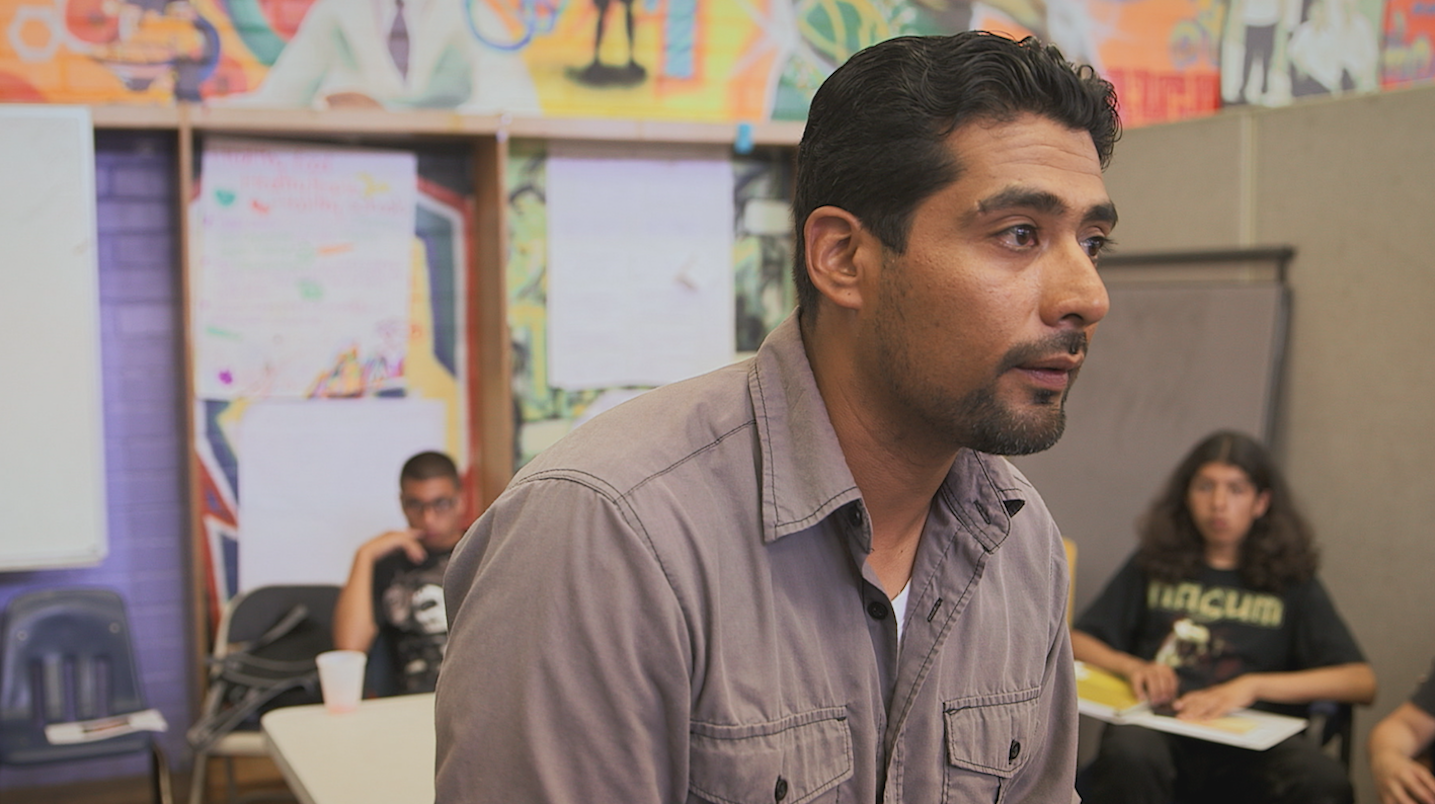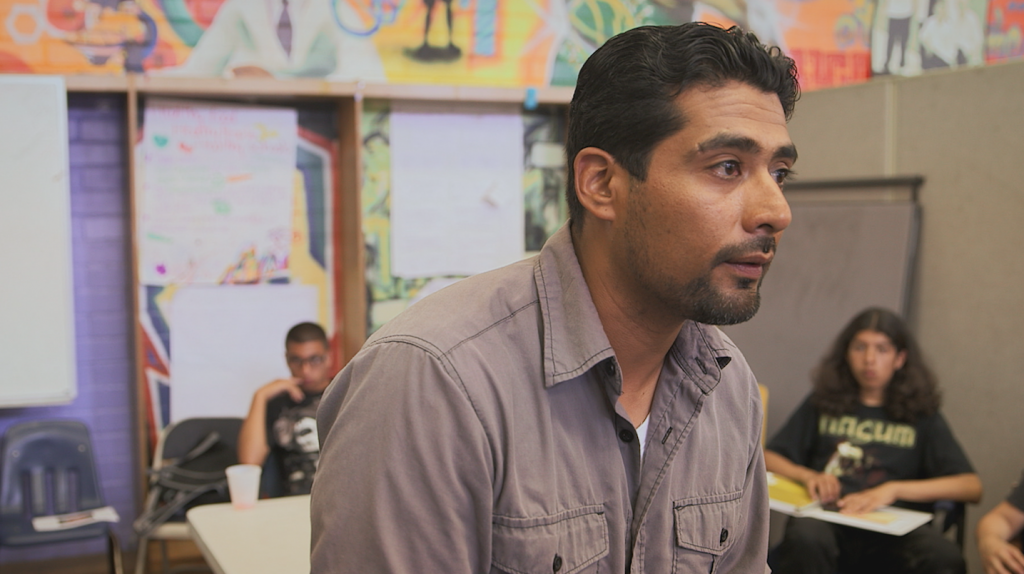“What you label people determines how you are going to treat them. If you label me ‘at risk’ that’s how you are going to see me even if you are very progressive,” author and professor Dr. Victor Rios told Remezcla following the World Premiere of the film The Pushouts at the Full Frame Documentary Film Festival in Durham, North Carolina.
Rios, who wrote the memoir Street Life: Poverty, Gangs, and a Ph.D. about growing up in Oakland and turning his life around, is the protagonist of this documentary by Katie Galloway and co-directed by Dawn Valadez that centers on his work mentoring young people of color at the Yo! Watts YouthSource Center.
For Rios, the war of language is the first that has to be won. Replacing the term “dropouts” with “pushouts” when referring to youth who are unable to finish high school and go on to college is a significant step to challenge the misconceptions around them. “Dropouts” puts the blame of academic failure entirely on the individual, while “pushouts” places responsibility on how society at large has influenced their educational history.
To illustrate his journey and use it as a striking example of what mentorship can accomplish on a developing mind, Galloway repurposed footage of Rios as a teenager that had been captured for a 1994 Frontline documentary titled School Colors. In that program, young Rios is presented as the negative stereotype of a gang member exhibiting violent behavior. However, the filmmakers dug through all the material that was shot back then including shots that didn’t make into the final cut for moments where his real potential came to light.
Being confronted with these images of his past prompted Rios to experience survivor’s guilt, when watching classmates and friends that didn’t follow his path to success and whose lives took darker turns. However, the director of The Pushouts believed that the contrast between those clips and who he is today was an irrefutable testament to resilience that would have an impact on viewers. “I think it’s very important that you see Victor as a young person. They need to see him then and then see him now. For them to see that kid was like them is priceless. I do have that to thank that earlier film, at least capturing that on film so the kids can see that and relate to it,” said Galloway, who obtained the archival pieces from the Center for Investigative Reporting.

Co-director Dawn Valadez, who’s spent 30 years involved in youth development, helped ensure the documentary included a multifaceted depiction of the Latino experience unlike the Frontline doc from 25 years ago which meant keeping in moments of joy and hopefulness. One particular instance she felt was emotionally relevant is an endearing moment in which Rios sings the classic Mexican tune Libro Abierto to the students, both as a metaphor for opening up to others, and to show his own vulnerability and in turn elicit trust from the participants at the Yo!Watts initiative, many of him have endured trauma and economic struggles from an early age.
According to Rios, the 500-year history of being colonized, invaded, and brainwashed have consistently set up people of color, specifically Latinos, for failure. He believes that in order for a marginalized community to rewrite its collective narrative and to confront the systems of oppression effectively, education that includes ethnic studies and racial literacy are
cornerstones. By implementing programs working towards these goals, adults can help the new generation realize they are capable of becoming “social dynamite” and “agents of change.”
Ahead of its national PBS broadcast release later this year, The Pushouts will travel to multiple film festivals across the US. The hope is it will eventually, through partnerships and alliances, become a resource for educators, school boards, and youth organizations.




